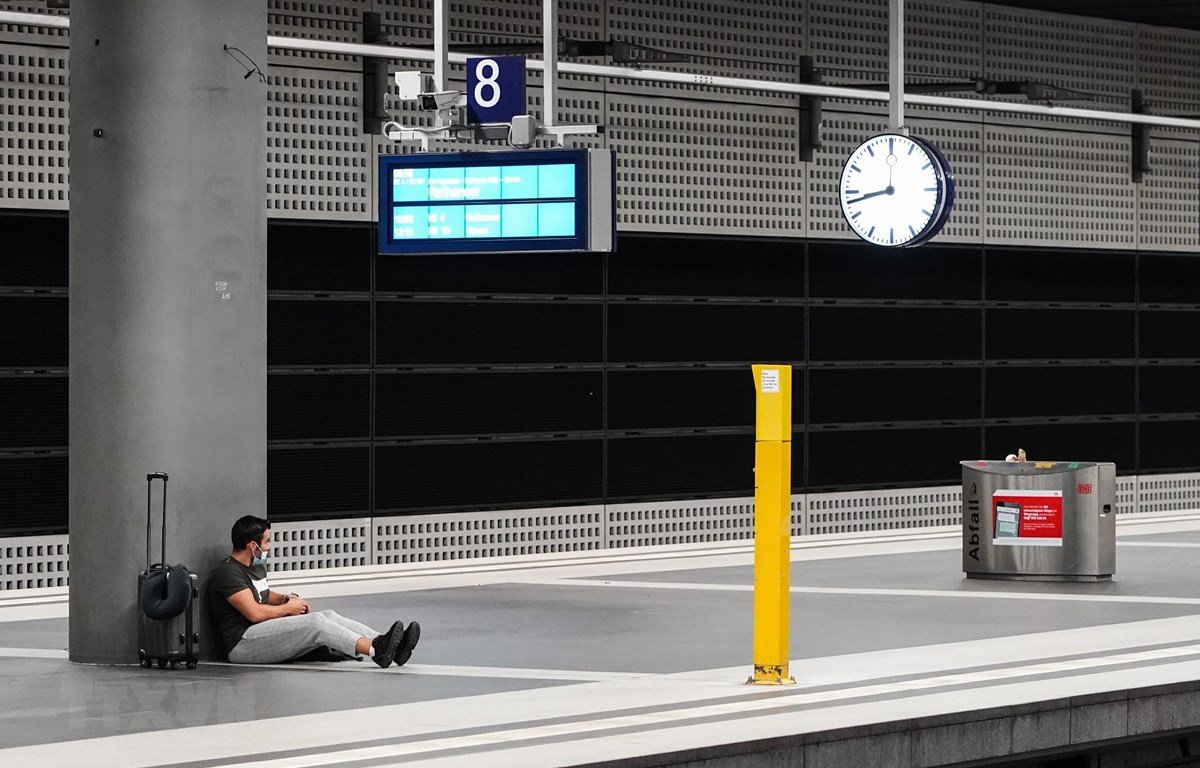HIGHLIGHTS
- A series of trains have been delayed at stations across Germany, leaving many travelers stranded. Just the first few hours after the strike took place, about 700 trains were halted.
- It is expected that next week the GDL will decide on the possibility and timing of continuing the strike against the DB after negotiations. on wages with this state-owned company failed.
- Economists and lobbying groups also say the freight strike could exacerbate Europe’s largest economy supply chain bottlenecks.
FULL ARTICLE
Workers strike to protest salary issue
In the context of high demand for rail travel, after Germany eased restrictions imposed to combat the COVID-19 epidemic during the peak tourist season, the strike plan affected the freight trains from 7 pm on August 10 and has spread to passenger trains from 2 am on 11/8 (German time).
A series of trains have been delayed at stations across Germany, leaving many travelers stranded. Just the first few hours after the strike took place, about 700 trains were halted.

The company is working to ensure that 1 in 4 long-distance trains remain on schedule as well as have a minimum of 1 train every 2 hours between cities. big street, Achim Stauss, a representative of German railway company Deutsche Bahn (DB), said.
Meanwhile, according to the leader of Germany’s GDL Train Drivers Union, Claus Weselsky, it is expected that next week the GDL will decide on the possibility and timing of continuing the strike against the DB after negotiations. on wages with this state-owned company failed. At the same time, it is emphasized that GDL will only return to the negotiating table if the DB makes an adjusted proposal.
GDL is requiring DB for a salary increase of about 3.2% and a one-time allowance of 600 euros (about 702.60 USD) during the epidemic period. GDL leaders said that the decision to strike on a weekday instead of at the peak weekend travel time showed the union’s goodwill to minimize the impact.
Can supply chain disruptions quickly lead to production shutdowns?
DB criticized this as a useless escalation of tensions, damaging the interests of customers. Economists and lobbying groups also say the freight strike could exacerbate Europe’s largest economy supply chain bottlenecks.
According to the German car manufacturers association VDA, the strike will create uncertainty and harm the logistics industry, which is already struggling to recover from the COVID-19 crisis. If the strikes are prolonged, companies can incur significant costs as supply chain disruptions quickly lead to production shutdowns.
The plan also creates new trouble for the German railway industry at the height of summer travel, as the industry has just begun to recover from months of paralysis due to the COVID-19 pandemic.

DB has suffered big losses as travel demand has plummeted since the global outbreak in March 2020. The company is currently struggling to mobilize resources to rebuild railway sections severely damaged in historic floods in Germany in mid-July.
Minh Ngo
FURTHER READING:
Rail freight transport also needs “green channel”













